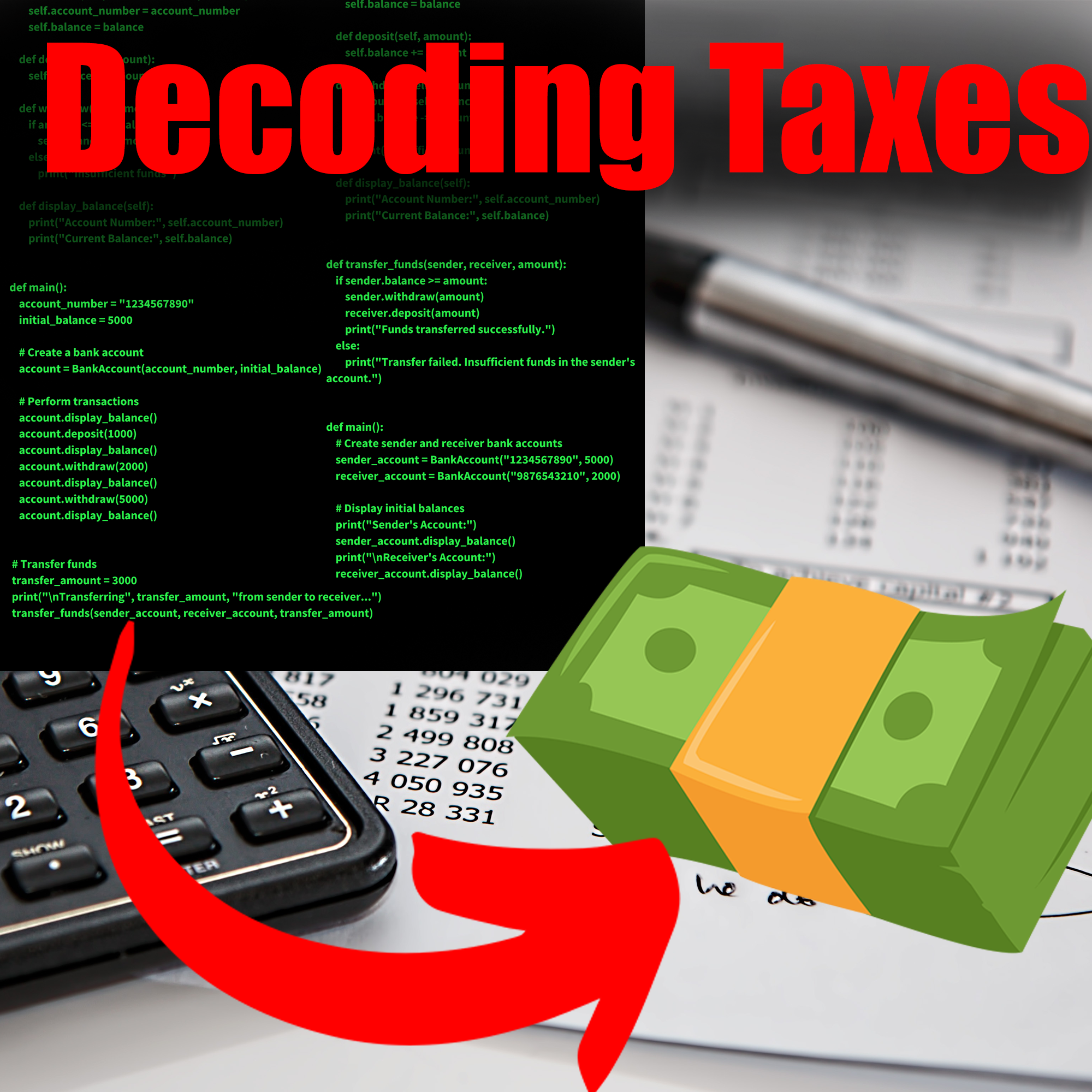
About
Grant Trevithick
Meet Grant Trevithick real estate investor, Author and philanthropist...
More about me
Decoding Property Taxes in Texas: Essential Insights for Real Estate Investors
- Posted May 23, 2023
Decoding Property Taxes in Texas: Essential Insights for Real Estate Investors
Introduction
Are you curious about the thriving real estate opportunities in the Lone Star State? Whether you're searching for homes for sale near you or considering investing in commercial property, Texas offers a diverse and dynamic market that has captured the attention of property investors across the globe.
As a real estate investor in Texas, it's crucial to have a comprehensive understanding of property taxes and their implications. Property taxes play a significant role in your investment's profitability and long-term success. By decoding property taxes in Texas, you can make informed decisions, optimize your returns, and navigate the intricacies of the state's real estate landscape with confidence.
In this comprehensive guide, we will delve into essential insights on property taxes in Texas specifically tailored for real estate investors like you. We'll explore various key aspects, including homes for sale and land for sale near you, commercial property for sale, and the significance of real estate agents and realty companies in the buying process. Additionally, we'll discuss investment properties, new construction homes, foreclosure opportunities, and the importance of property appraisals for accurate valuation.
Throughout this article, we aim to equip you with the knowledge and tools needed to make informed decisions, identify investment opportunities, and maximize your real estate ventures in the 21st-century Texas market. So, whether you're a seasoned property investor or a first-time buyer, let's embark on this enlightening journey to decode property taxes in Texas and unlock the doors to your real estate success.
Understanding Property Taxes in Texas
Definition and Purpose of Property Taxes
Property taxes are a fundamental aspect of real estate ownership in Texas. These taxes serve as a primary source of revenue for local governments, including counties, school districts, and municipalities. The funds generated from property taxes contribute to essential public services such as education, infrastructure development, law enforcement, and community programs. By understanding the definition and purpose of property taxes, real estate investors can gain insights into their financial obligations and the benefits derived from their contributions.
How Property Taxes are Calculated in Texas
In Texas, property taxes are calculated based on the appraised value of the property. The appraised value is determined by the county appraisal district or an appraiser appointed by the district. The appraisal process involves assessing various factors, including the property's location, size, amenities, and market conditions. Once the appraised value is established, it serves as the basis for calculating property taxes.
To calculate the property tax liability, the appraised value is multiplied by the applicable tax rate, which is expressed as a percentage. The tax rate consists of rates set by different taxing authorities, such as the county, school district, and city. It's important to note that property tax rates can vary across different locations and may be subject to periodic adjustments.
Factors that Influence Property Tax Rates
Several factors influence property tax rates in Texas. These factors can vary depending on the specific jurisdiction and the property's classification as residential or commercial. Here are some key considerations:
- Local Taxing Authorities: Each taxing authority, such as counties, school districts, and cities, has the authority to set its own tax rates. The combined rates of these authorities determine the overall property tax rate.
- Property Classification: Residential and commercial properties are subject to different tax rates and regulations. Residential properties, including homes for sale near you, are typically assessed at lower rates compared to commercial properties like commercial property for sale or investment properties.
- Tax Exemptions and Deductions: Texas offers various exemptions and deductions that can reduce property tax liabilities. These may include exemptions for homeowners, senior citizens, veterans, disabled individuals, and agricultural or conservation-related properties.
- State Legislative Changes: Property tax rates can be influenced by legislative changes at the state level. Understanding current laws and potential upcoming changes is crucial for real estate investors to plan their tax strategies effectively.
Differences between Residential and Commercial Property Taxes
Residential and commercial properties are subject to distinct tax structures in Texas. Residential property taxes are generally based on a lower tax rate compared to commercial properties. Commercial property taxes, including properties such as commercial property for sale or rental properties, tend to have higher rates due to their income-generating potential.
It's worth noting that residential properties may also benefit from homestead exemptions, which provide additional tax relief to homeowners occupying their properties as their primary residences. Commercial properties, on the other hand, may have different appraisal methods, such as the income approach, which considers the property's potential income and market value.
Understanding the differences between residential and commercial property taxes is crucial for real estate investors to evaluate the potential tax liabilities and optimize their investment strategies accordingly.
Key Considerations for Real Estate Investors
Importance of Property Tax Knowledge for Investors
Having a solid understanding of property taxes is crucial for real estate investors in Texas. By acquiring in-depth knowledge of property tax regulations and trends, investors can make informed decisions and factor in tax implications when evaluating potential investment opportunities. This knowledge empowers investors to estimate their ongoing expenses accurately and determine the profitability of properties, ensuring a more successful and sustainable investment journey.
Evaluating Property Taxes When Searching for Investment Properties
When searching for investment properties, it's essential to evaluate the property taxes associated with each potential investment. Consider the following factors:
- Location-Specific Tax Rates: Different areas within Texas may have varying property tax rates. Research and compare the tax rates of different locations, including homes for sale near you, land for sale, and commercial property for sale, to gauge the potential tax burdens.
- Assessment and Appraisal Accuracy: Thoroughly examine the accuracy of property assessments and appraisals to ensure that the property's value aligns with market conditions. Inaccurate assessments can lead to overpaying on property taxes.
- Future Tax Projections: Evaluate the historical trends of property tax rates in the area to make projections for future tax liabilities. This analysis can assist in predicting potential increases or decreases in property taxes and help investors plan accordingly.
Impact of Property Taxes on Rental Property Profitability
For real estate investors considering rental properties, property taxes play a significant role in determining profitability. Understanding the impact of property taxes on rental property cash flow is essential. Consider the following:
- Rental Rates: Property tax expenses can influence the rental rates investors set for their properties. Higher property taxes may necessitate higher rental rates to maintain profitability.
- Tax Deductibility: Some property taxes paid on rental properties may be tax-deductible. Consult with a tax professional to understand how property taxes can affect your tax liability and the potential deductions available to you.
- Tenant Attraction and Retention: High property taxes can indirectly affect tenant attraction and retention. If property taxes increase significantly, landlords may need to adjust rental rates, potentially impacting tenant demand and turnover rates.
Strategies to Minimize Property Tax Liabilities
Real estate investors can implement several strategies to minimize property tax liabilities. Consider the following approaches:
- Understand Exemptions and Abatements: Familiarize yourself with property tax exemptions and abatements available in Texas, such as homestead exemptions, agricultural exemptions, or incentives for certain property types. Utilizing these exemptions can reduce your overall tax burden.
- Appeal Property Assessments: If you believe your property assessment is inaccurate or unfairly high, you have the right to appeal the assessment. Understand the process and requirements for appealing property assessments to potentially lower your property taxes.
- Consider Tax-Saving Entities: Exploring the establishment of tax-saving entities, such as limited liability companies (LLCs) or real estate investment trusts (REITs), may provide tax benefits and potential reductions in property tax liabilities.
- Stay Informed About Legislative Changes: Stay updated on any legislative changes or proposals related to property taxes in Texas. These changes can have a significant impact on your tax obligations and investment strategies.
By implementing these strategies and staying proactive, real estate investors can effectively minimize their property tax liabilities and optimize the profitability of their investments.
Exploring Real Estate Opportunities in Texas
Overview of the Texas Real Estate Market
The Texas real estate market is a thriving and diverse landscape that offers numerous opportunities for investors. With a strong economy, population growth, and a favorable business climate, Texas has become a magnet for real estate investment. Whether you're looking for homes for sale near you, land for sale, or commercial property for sale, Texas provides a wide range of options to suit various investment strategies.
Trends in Homes for Sale and Land for Sale
The Texas real estate market showcases several notable trends in homes for sale and land for sale. Currently, there is high demand for residential properties across different price ranges. Affordable housing options are particularly sought after, catering to first-time homebuyers and investors looking for entry-level properties. Additionally, the availability of land for sale presents opportunities for development, whether for residential or commercial purposes.
Popular Locations for Investment Properties
Texas offers a multitude of popular locations for investment properties, each with its own unique advantages. Major cities such as Austin, Dallas, Houston, and San Antonio are hotspots for real estate investment. These cities boast robust job markets, population growth, and diverse economies, making them attractive for both residential and commercial investments. Additionally, emerging markets in suburban areas and smaller cities provide opportunities for investors seeking affordable properties with growth potential.
Unique Opportunities such as Lake Houses for Sale and New Construction Homes
Beyond traditional investment options, Texas presents unique opportunities that can add value to investors' portfolios. Lake houses for sale are highly desirable properties, offering picturesque views, recreational activities, and a tranquil lifestyle. These properties can cater to buyers seeking vacation homes or individuals looking to embrace lakefront living year-round.
Moreover, the demand for new construction homes continues to rise in Texas. As the population grows, so does the need for modern, energy-efficient properties. Investors can capitalize on this trend by partnering with reputable builders or exploring new construction projects themselves, providing desirable homes to buyers in high-demand areas.
By understanding the trends, popular locations, and unique opportunities in the Texas real estate market, investors can make informed decisions and identify lucrative investment prospects that align with their goals.
Navigating the Real Estate Process in Texas
Role of a Real Estate Agent in Property Transactions
When it comes to buying or selling a house or property in Texas, a real estate agent plays a crucial role. These professionals are licensed experts who facilitate transactions, provide market insights, and offer guidance throughout the process. A real estate agent's primary responsibility is to represent the interests of their clients and ensure a smooth and successful transaction.
Finding a Reliable Real Estate Agent or Realty Company
Finding a reliable real estate agent or realty company is essential for a successful real estate transaction. Start by seeking recommendations from friends, family, or colleagues who have recently bought or sold property in Texas. Online platforms and directories can also provide a list of reputable agents and companies in your desired area. Take the time to research and interview potential agents to assess their experience, knowledge of the local market, and track record of successful transactions.
Understanding the Services Provided by Real Estate Agents
Real estate agents provide a range of services to facilitate property transactions. They assist with property searches, schedule viewings, negotiate offers, and handle paperwork. Agents have access to comprehensive databases and can provide valuable insights on market trends, pricing, and neighborhood dynamics. They can also connect buyers with financing options, recommend property appraisers, and coordinate with other professionals involved in the transaction, such as attorneys or inspectors.
Tips for Buying a House or Property in Texas
When buying a house or property in Texas, consider the following tips:
- Determine your budget and obtain pre-approval for a mortgage if necessary.
- Research neighborhoods and areas that align with your preferences and lifestyle.
- Work closely with your real estate agent to identify suitable properties and schedule viewings.
- Conduct thorough inspections and consider hiring professionals for specialized inspections, such as a home inspector or structural engineer.
- Review and negotiate the terms of the purchase contract, including contingencies and timelines.
- Work with your agent to coordinate the closing process, ensuring all necessary documents and funds are in order.
- Consider the potential property tax implications and factor them into your financial planning.
By understanding the role of real estate agents, finding a reliable agent or company, and being aware of the services they provide, buyers can navigate the real estate process in Texas with confidence and make informed decisions.
Resources for Property Search and Analysis
Utilizing Online Platforms for Property Search
In the digital age, online platforms have become invaluable resources for property search. Websites and mobile apps provide convenient access to extensive listings of homes for sale, land for sale, and commercial properties. By utilizing these platforms, investors can customize their search based on location, price range, property type, and other criteria. Popular platforms such as Zillow, Realtor.com, and Redfin offer user-friendly interfaces and advanced search filters to help investors find suitable properties.
Tools for Analyzing Investment Properties and Market Trends
Analyzing investment properties and market trends is crucial for making informed decisions. Several online tools can assist investors in this process. For example, tools like Mashvisor, Roofstock, and PropStream provide data-driven insights, including property valuation estimates, rental income projections, market trends, and historical sales data. These tools enable investors to evaluate potential returns on investment, assess market conditions, and identify emerging opportunities.
Accessing Property Appraisals and Assessments
Understanding the value of a property is essential for accurate investment analysis. Property appraisals and assessments provide valuable insights into a property's worth. In Texas, county appraisal districts maintain records of property appraisals and assessments. Many appraisal districts have online portals where investors can access this information. Websites like the Texas Comptroller of Public Accounts and the Texas Association of Appraisal Districts offer resources and guidance on accessing property appraisal data.
Exploring Foreclosure and Rental Property Opportunities
Investors interested in foreclosure and rental property opportunities can leverage various resources. Foreclosure listings can be found on specialized websites like RealtyTrac and Foreclosure.com. These platforms provide information on distressed properties, including their location, condition, and foreclosure stage. Additionally, websites like Rent.com, Apartments.com, and Zumper offer comprehensive listings of rental properties, enabling investors to explore rental markets, rental rates, and vacancy rates in their target areas.
By utilizing online platforms for property search, leveraging tools for property analysis, accessing property appraisals and assessments, and exploring foreclosure and rental property opportunities, real estate investors in Texas can gather the necessary information and insights to make informed decisions and maximize their investment potential.
Recap of Key Insights for Real Estate Investors
Throughout this article, we have delved into the intricacies of property taxes in Texas and provided essential insights for real estate investors. We explored the definition and purpose of property taxes, how they are calculated, factors influencing tax rates, and the differences between residential and commercial property taxes. We also discussed the importance of property tax knowledge for investors, evaluating property taxes when searching for investment properties, the impact of property taxes on rental property profitability, and strategies to minimize tax liabilities. Additionally, we explored real estate opportunities in Texas, including an overview of the market, trends in homes and land for sale, popular locations for investment properties, and unique opportunities such as lake houses and new construction homes. We then navigated the real estate process, highlighting the role of real estate agents, tips for finding reliable agents, and understanding the services they provide. Lastly, we discussed resources for property search and analysis, including online platforms, tools for property analysis, accessing property appraisals and assessments, and exploring foreclosure and rental property opportunities.
Encouragement to Leverage Property Tax Knowledge in Texas
As a real estate investor in Texas, understanding property taxes is vital for making informed decisions and maximizing your investment potential. By decoding property taxes, you gain a competitive edge and can navigate the real estate landscape more effectively. Armed with knowledge about tax calculations, factors influencing tax rates, and strategies to minimize tax liabilities, you can identify properties with favorable tax conditions and enhance your overall returns. Moreover, being aware of the unique opportunities and market trends in Texas allows you to capitalize on emerging prospects and make sound investment choices.
The Next Steps in Your Real Estate Endeavors
If you're an aspiring or seasoned real estate investor, it's time to put your knowledge into action. Start by conducting property searches using online platforms, utilizing tools for property analysis, and exploring foreclosure and rental property opportunities. Connect with reputable real estate agents or realty companies who can assist you in finding suitable properties and guide you through the buying process. Stay informed about market trends and property appraisals to make well-informed investment decisions. Remember, the key to success in real estate lies in continuous learning, adaptation, and taking calculated risks.
So, go ahead and embark on your real estate journey with confidence. Decoding property taxes in Texas has equipped you with essential insights, and now it's time to seize the opportunities that await you. Happy investing!





